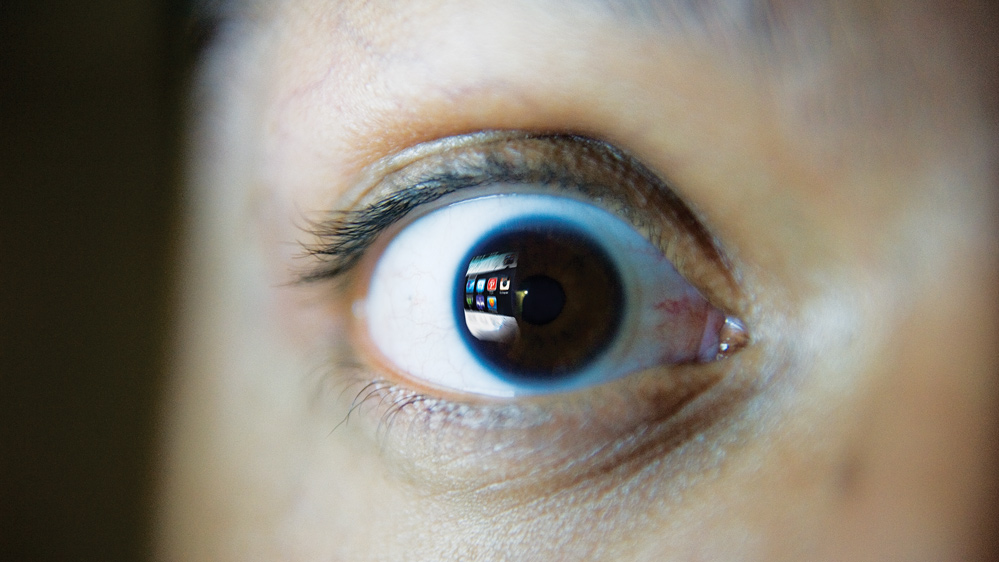Victoria Alarcon
Sports & Health Editor
It’s 2 am, and Sarah Alyana is receiving her fourth text of the night as she quietly moves to grab her phone. It’s getting later into the night, but just as quickly as she’s ready to go to bed, another text appears and sleep becomes the last thing in her mind.
“It’s very addictive,” says Alyana, a second-year student at York University. Her eyes dart downward as she glances quickly at her computer. “I don’t get much sleep because I’m always on my laptop most of the night, and otherwise I’m texting people at night.”

Alyana is not the only one who can’t let go of her very binding addiction to the computer. The majority of Canadians use technology right before sneaking into bed.
“We see this on a daily basis here in our sleep clinic, that many Canadians are not getting an adequate amount of nightly sleep,” said Dr. Robert Cohen, a Calgary-based sleep expert specializing in insomnia and sleep disorders. “They carry a sleep debt, and of the many factors responsible for that debt, one is certainly the prevalence of technology use before bed.”
A recent survey published by the National Sleep Foundation found that 95 percent of Americans are using some form of technology within the hour before they go to bed. Of the 293 Americans surveyed between ages 19 and 29, 67 percent of the group used their cell phones then, while 60 percent turned to their computer or laptop in the night.
An Excalibur survey of 100 students found York is not so different. At 77 percent, a majority of students depend solely on technology to get them rested before bed – it’s become routine. Fifty-three percent of students are either using their laptop or computer every night, and 31 percent are using it almost every night. In addition, a growing number of York students are using their cell phone every night in the hour before sleeping, often sending, reading or receiving messages or talking on the phone.
Technology can be addictive, but what about it has us so sleep deprived?
According to Cohen, it’s the stimulation that comes from being on the computer or cell phone every night. “The hyper arousal from the technology gets us wound up so that we are unable to fall asleep,” he explains.
“One of the things that was written in the survey is active versus passive technology. If someone is listening to music, listening to the radio or watching television, that’s got be a little less disruptive to sleep compared to something active like gaming, texting or working on the computer. In terms of the stimulation and the hyper-arousal in people, people just get worked up. It’s like if somebody participated in a vigorous exercise an hour before bed, they get hyper-stimulated and it’s very hard to fall asleep.”
But the stimulation that comes from playing games on an Xbox or a Wii is not solely to blame; the light emitted from different screens also suppresses our desire to sleep.
Dr. Charles Czeisler, director of the division of sleep medicine at Harvard Medical School, said in a press release that artificial light exposure “suppresses release of the sleep-promoting hormone melatonin, enhances alertness and shifts circadian rhythms to a later hour – making it more difficult to fall asleep.”
Cohen agrees. “Though we don’t have strong scientific evidence, there is good rationale that, depending on the type of technology, the light emitted from technology can suppress the hormone melatonin, which one needs to fall asleep.”
In the Excalibur survey, 29 percent of students had several sleeping problems, from having difficulty falling asleep to waking up during the night.
And though most students have these sleep problems only a few nights, students are not getting a good night’s rest because they’re not prioritizing sleep.
“Specifically, university students do need at least eight to nine hours of sleep, and there is clear scientific evidence in the laboratory in research on the effects of chronic partial sleep restriction that it decreases mood, performance and health. People who don’t get enough sleep gain weight since it affects their metabolic systems,” said Cohen.
According to researchers, sleep makes for the difference between waking up a drained, irritated student to a focused and patient one. Cohen notes university students who want not only to have high marks but also good relationships should strive to have a good amount of sleep.
“One of the ways to improve someone’s sleep is to limit the use of caffeine, alcohol, [and] nicotine in the evening hours and have a good wind-down routine prior to bed, preferably without technology. Certainly don’t have technology in the bedroom and have it on through the night,” said Cohen.
It’s also important that students have as much of a consistent sleep schedule throughout the entire week by having a regular bedtime and a regular wake time, recommended Cohen.
Technology may be growing faster than it’s ever grown and many York students are relying heavily on technology to pass the night, but Cohen believes that if someone really values the payoff of what a good night’s sleep will give them, then the decision to get rid of technology before bedtime won’t be such a hard thing to do.
Is technology making us sleep deprived?





The answer is yes.
check out the program called “Flux”
http://stereopsis.com/flux/